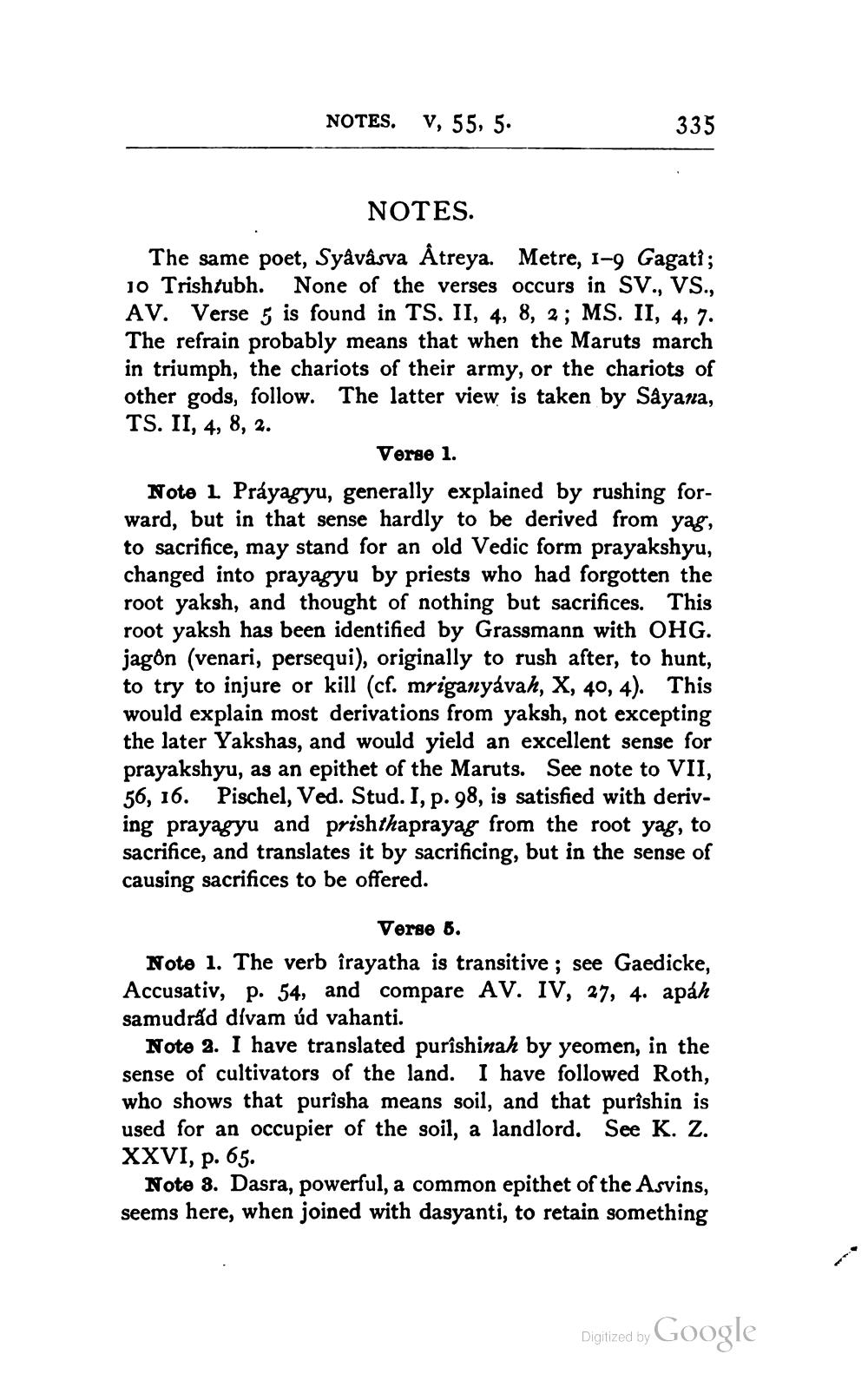________________
NOTES. V, 55, 5.
335
NOTES.
The same poet, Syåvåsva Åtreya. Metre, 1-9 Gagati; 10 Trishtubh. None of the verses occurs in SV., VS., AV. Verse 5 is found in TS. II, 4, 8, 2; MS. II, 4, 7. The refrain probably means that when the Maruts march in triumph, the chariots of their army, or the chariots of other gods, follow. The latter view is taken by Sayana, TS. II, 4, 8, 2.
Verse 1. Note 1 Prayagyu, generally explained by rushing forward, but in that sense hardly to be derived from yąg, to sacrifice, may stand for an old Vedic form prayakshyu, changed into prayagyu by priests who had forgotten the root yaksh, and thought of nothing but sacrifices. This root yaksh has been identified by Grassmann with OHG. jagôn (venari, persequi), originally to rush after, to hunt, to try to injure or kill (cf. mriganyávah, X, 40, 4). This would explain most derivations from yaksh, not excepting the later Yakshas, and would yield an excellent sense for prayakshyu, as an epithet of the Maruts. See note to VII, 56, 16. Pischel, Ved. Stud. I, p. 98, is satisfied with deriving prayagyu and prishthaprayag from the root yag, to sacrifice, and translates it by sacrificing, but in the sense of causing sacrifices to be offered.
Verse 6. Note 1. The verb îrayatha is transitive ; see Gaedicke, Accusativ, p. 54, and compare AV. IV, 27, 4. apáh samudrad divam úd vahanti.
Note 2. I have translated purîshinah by yeomen, in the sense of cultivators of the land. I have followed Roth, who shows that purisha means soil, and that purishin is used for an occupier of the soil, a landlord. See K. Z. XXVI, p. 65.
Note 8. Dasra, powerful, a common epithet of the Asvins, seems here, when joined with dasyanti, to retain something
Digitized by
Digilzed by Google




